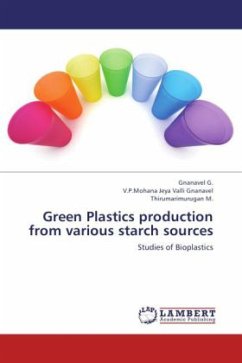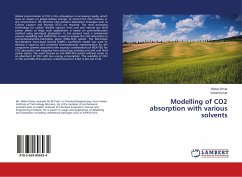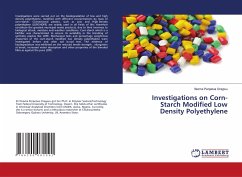Bioplastics are a form of plastics derived from renewable biomass sources, such as vegetable fats and oils, corn starch, pea starch,or microbiota, Common plastics, such as fossil-fuel plastics, are derived from petroleum. These plastics rely more on scarce fossil fuels and produce more greenhouse gas. Bioplastics are more sustainable because they can break down in the environment faster than fossil-fuel plastics, which can take more than 100 years. Some, but not all, bioplastics are designed to biodegrade. Bioplastics which are designed to biodegrade can break down in either anaerobic or aerobic environments, depending on how they are manufactured. There is a variety of bioplastics being made; they can be composed of starches, cellulose, or biopolymers. Some common applications of bioplastics are packaging materials, dining utensils, food packaging, and insulation.
Bitte wählen Sie Ihr Anliegen aus.
Rechnungen
Retourenschein anfordern
Bestellstatus
Storno








